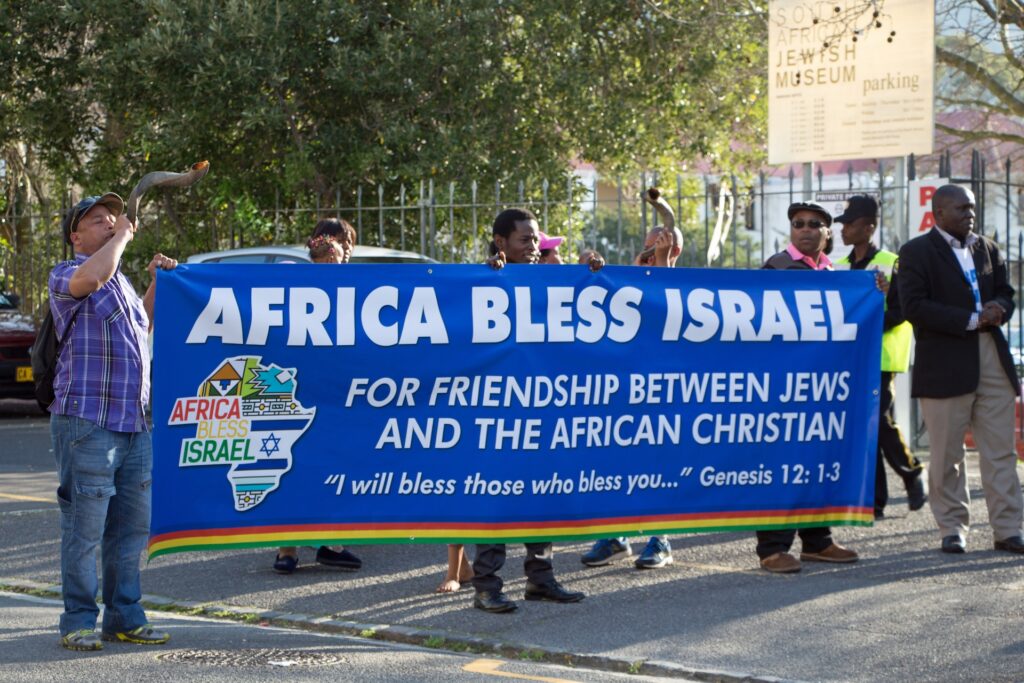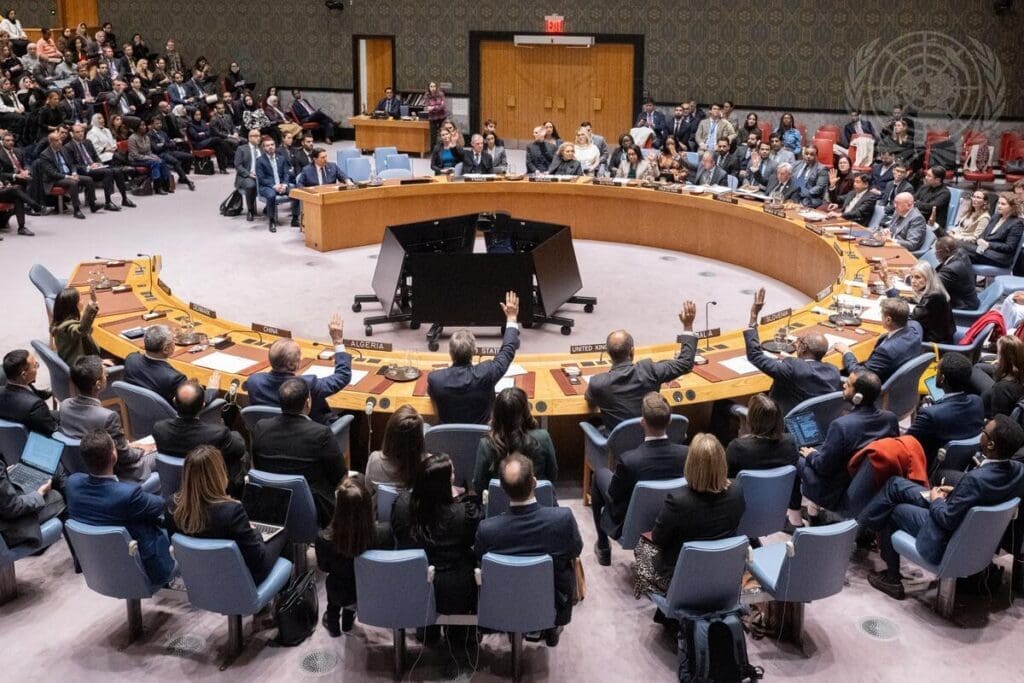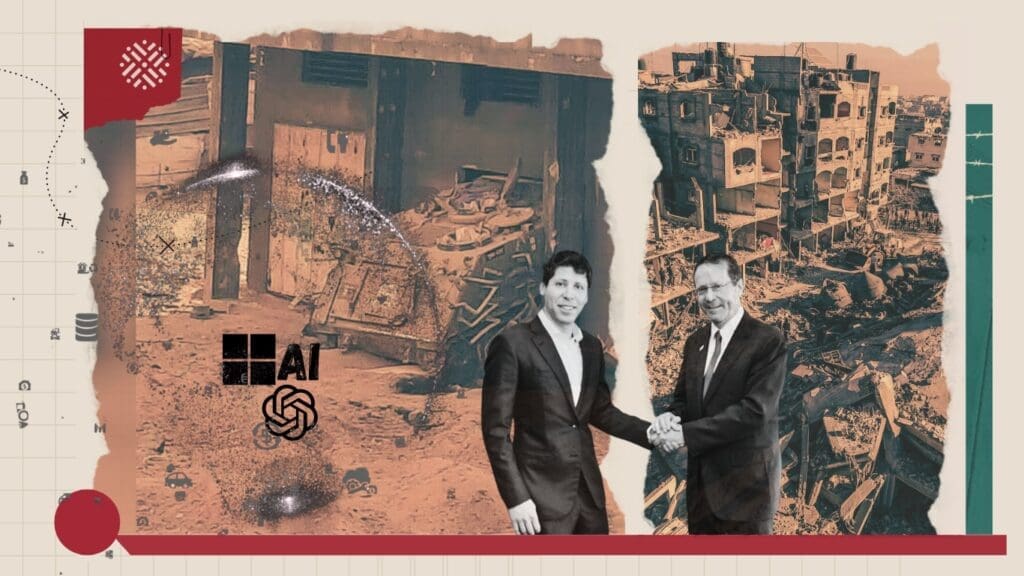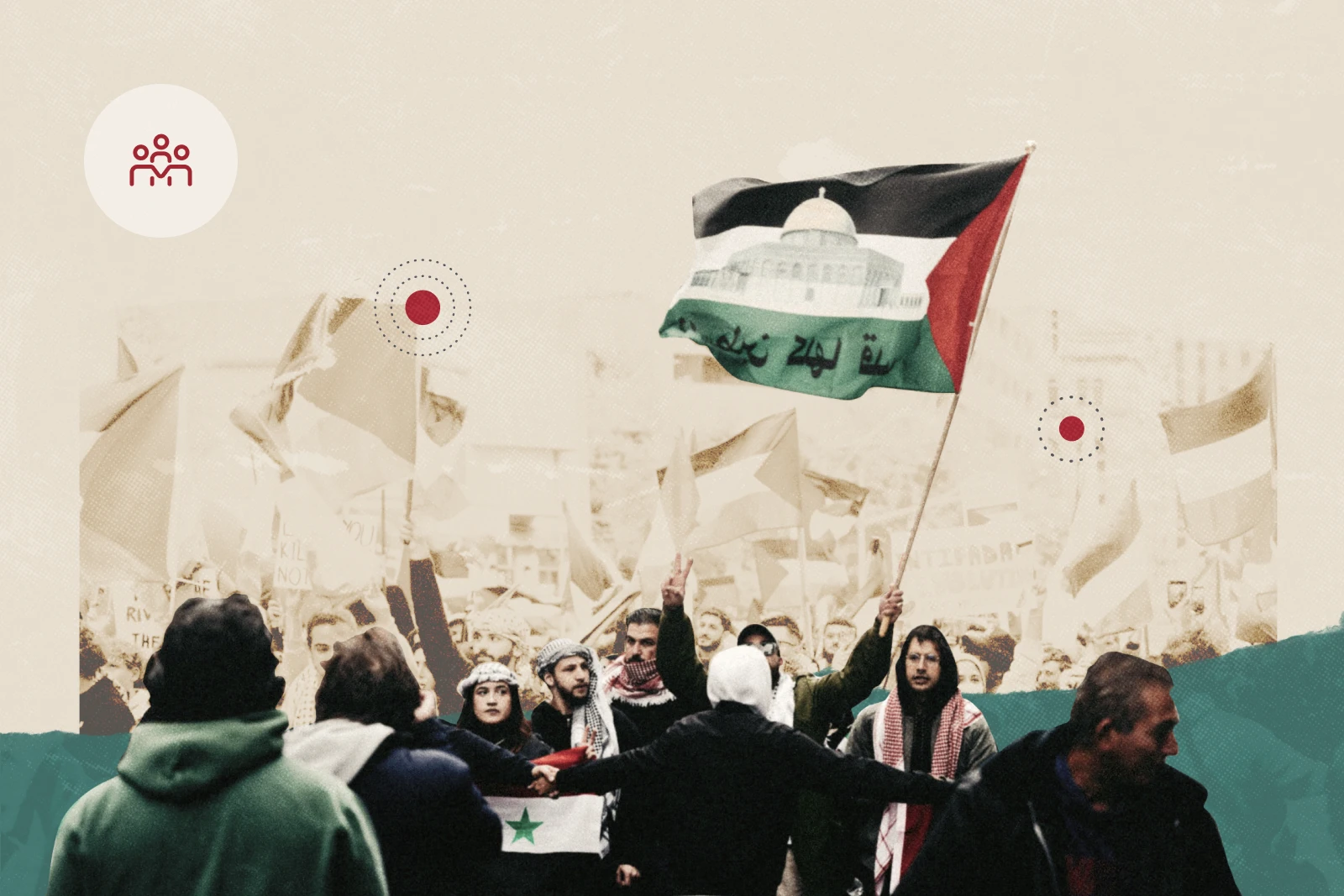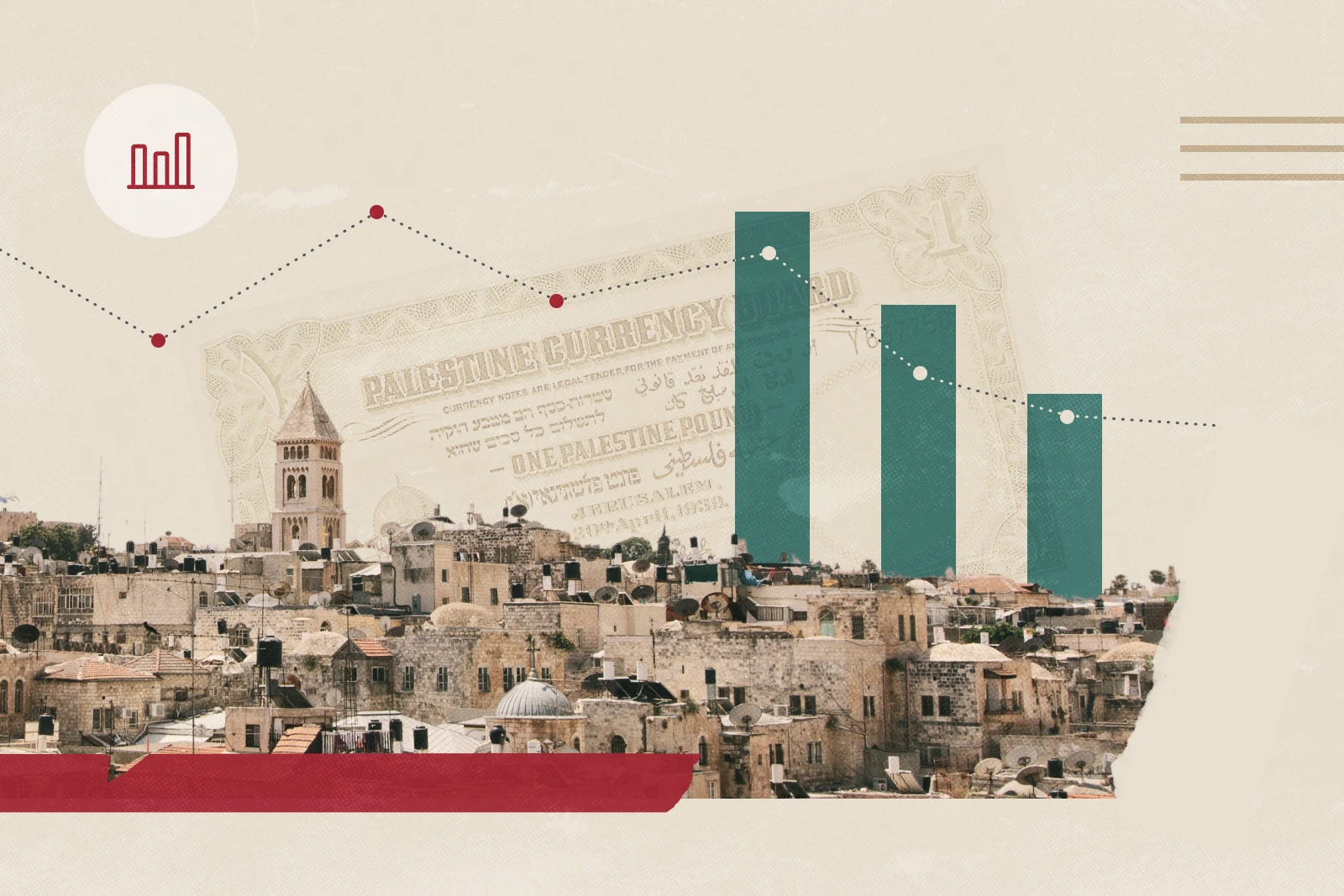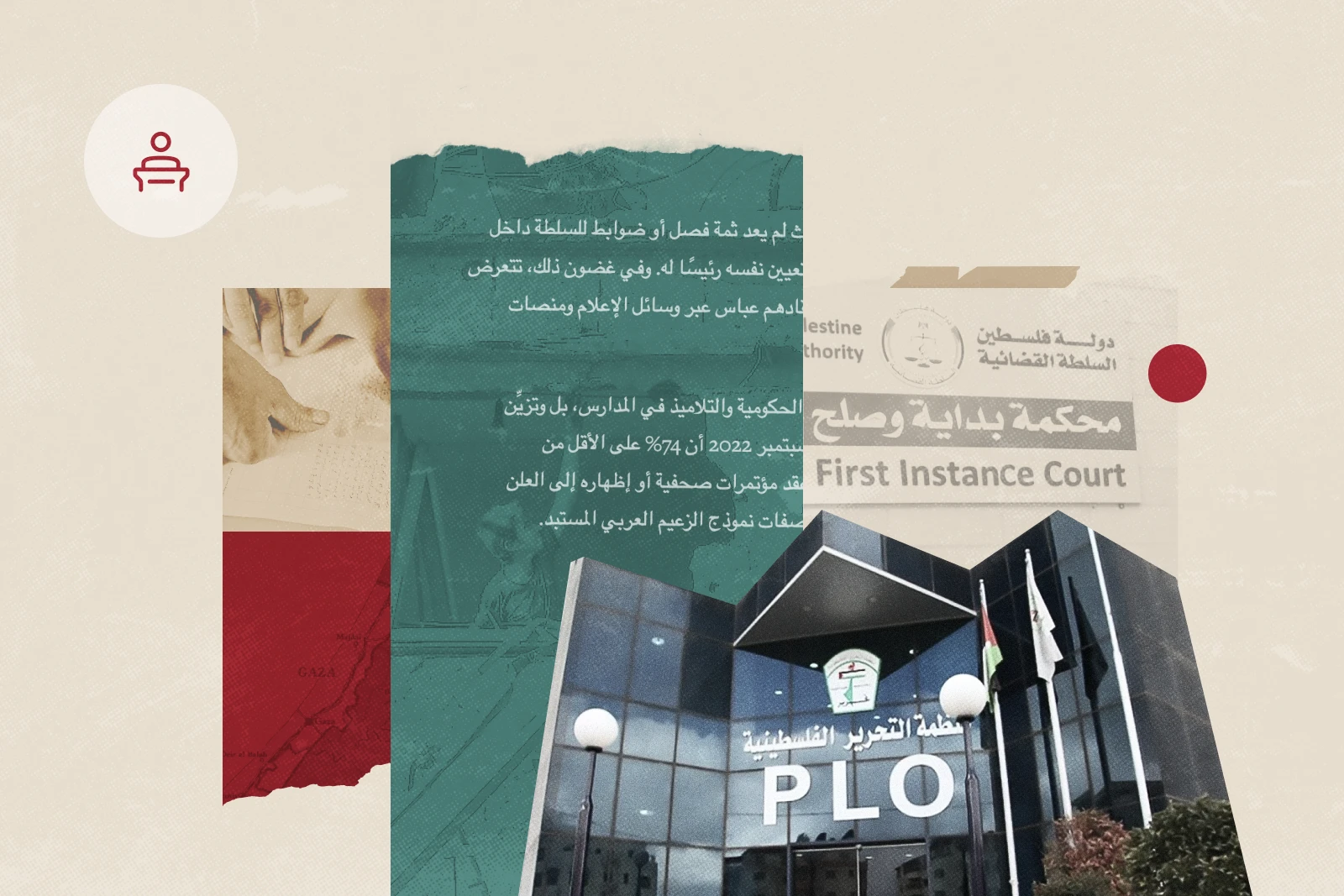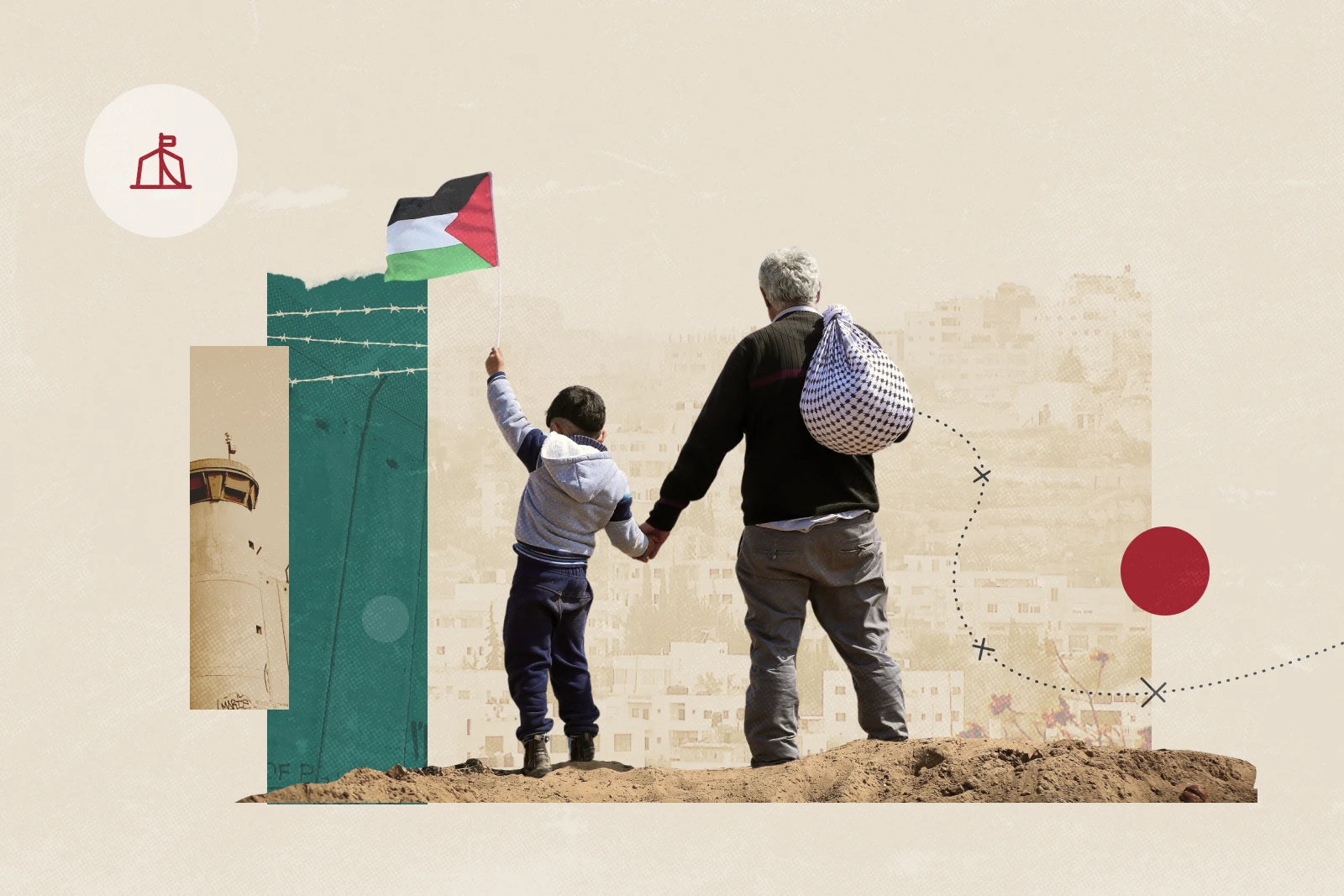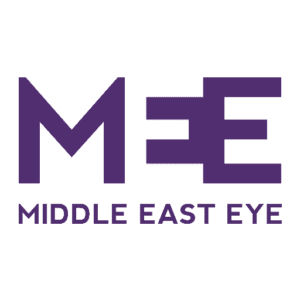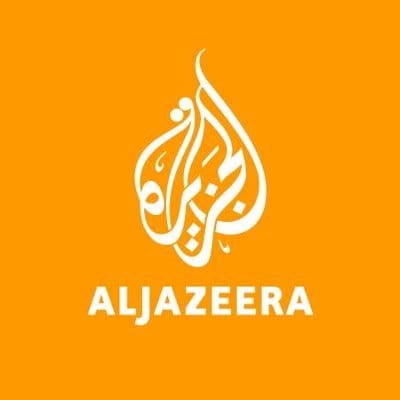Analysis & Articles
Critical policy analysis and visionary insights from the only multidisciplinary, global network of Palestinian analysts.
On November 4, 2025, the UK government tabled an amendment to the Crime and Policing Bill to curtail protest rights under the pretext of “cumulative disruption.” The revised Bill is now in the House of Lords Committee, where it is scrutinized before advancing toward final approval. The amendment signals a profound shift in how the state regulates public protest. While the government presents the Bill as a neutral public order measure, it emerges directly from sustained national demonstrations for Palestinian rights and introduces new legal concepts that threaten long-established democratic freedoms.
This roundtable examines the Bill’s political drivers, legal architecture, and wider implications for social movements and civil liberties in the UK. It shows that the amendment is not simply a public order measure; it is a coordinated political and legal project to narrow the space for dissent in the UK. While Palestinian solidarity is the immediate target of the crackdown on freedom of assembly, the roundtable argues that the consequences will reverberate across labor organizing, racial justice, climate activism, and broader democratic participation.



“We’re all going to end up in Jordan,” remarked a young man from Al-Jiftlik, a Palestinian village in the Jordan Valley. His comment reflects growing despair in the West Bank countryside, where Israeli settler-colonial expansion has intensified to unprecedented levels. This is particularly true in the Jordan Valley, the agricultural heartland along the West Bank’s eastern frontier with Jordan. Once known among Palestinians as the “bride of the Jordan Valley,” Al-Jiftlik now illustrates the gravity of Israeli state-sponsored settler expansion on Palestinian land, having transformed from a prosperous agricultural community into one under siege and facing sustained displacement pressure.
Since the beginning of Israel’s genocidal war on Gaza in October 2023, land seizure in the West Bank has shifted from creeping settler encroachment to a vicious military-backed campaign of territorial theft. This commentary shows how the Israeli regime’s land appropriation policy in the West Bank, once justified through bureaucratic-legal land seizure orders, has now increasingly shifted toward direct settler takeovers. This shift does not indicate a change in objectives but rather an escalation of existing settlement expansion mechanisms, signaling the growing power and influence of the settler movement over Israeli policy.

Fathi Nimer· Feb 3, 2026
The announcement of the National Committee for the Administration of Gaza (NCAG), a 15-member technocratic body chaired by Ali Shaath, signals a shift toward depoliticized governance in Gaza amid ongoing genocide. Shaath, a Palestinian civil engineer and former deputy minister of planning and international cooperation, will lead an interim governing structure tasked with managing reconstruction and service provision under external oversight. While presented as a neutral technocratic governing structure, the NCAG is more likely to function as a managerial apparatus that stabilizes conditions that enable genocide rather than challenging them.
This policy memo argues that technocratic governance in Gaza—particularly under US oversight, given its role as a co-perpetrator in the genocide—should be understood not as a pathway to recovery or sovereignty, but as part of a broader strategy of genocide management.

Yara Hawari· Jan 26, 2026
This policy brief introduces de-healthification as a framework for understanding Israel’s systematic destruction of Palestinian healthcare infrastructure, particularly in Gaza. Rather than viewing the collapse of Gaza’s health system as a secondary outcome of the genocide, the brief argues that it is the product of long-standing policies of blockade, occupation, and structural neglect intended to render Palestinian life unhealable and perishable.
By tracing the historical evolution of de-healthification, this brief argues that naming the process is essential for accountability. Because intent is revealed through patterns of destruction rather than explicit declarations, the framework of de-healthification equips policymakers, legal bodies, and advocates to identify healthcare destruction and denial as a core mechanism of settler-colonial control.

Layth Malhis· Jan 11, 2026
On November 4, 2025, the UK government tabled an amendment to the Crime and Policing Bill to curtail protest rights under the pretext of “cumulative disruption.” The revised Bill is now in the House of Lords Committee, where it is scrutinized before advancing toward final approval. The amendment signals a profound shift in how the state regulates public protest. While the government presents the Bill as a neutral public order measure, it emerges directly from sustained national demonstrations for Palestinian rights and introduces new legal concepts that threaten long-established democratic freedoms.
This roundtable examines the Bill’s political drivers, legal architecture, and wider implications for social movements and civil liberties in the UK. It shows that the amendment is not simply a public order measure; it is a coordinated political and legal project to narrow the space for dissent in the UK. While Palestinian solidarity is the immediate target of the crackdown on freedom of assembly, the roundtable argues that the consequences will reverberate across labor organizing, racial justice, climate activism, and broader democratic participation.



“We’re all going to end up in Jordan,” remarked a young man from Al-Jiftlik, a Palestinian village in the Jordan Valley. His comment reflects growing despair in the West Bank countryside, where Israeli settler-colonial expansion has intensified to unprecedented levels. This is particularly true in the Jordan Valley, the agricultural heartland along the West Bank’s eastern frontier with Jordan. Once known among Palestinians as the “bride of the Jordan Valley,” Al-Jiftlik now illustrates the gravity of Israeli state-sponsored settler expansion on Palestinian land, having transformed from a prosperous agricultural community into one under siege and facing sustained displacement pressure.
Since the beginning of Israel’s genocidal war on Gaza in October 2023, land seizure in the West Bank has shifted from creeping settler encroachment to a vicious military-backed campaign of territorial theft. This commentary shows how the Israeli regime’s land appropriation policy in the West Bank, once justified through bureaucratic-legal land seizure orders, has now increasingly shifted toward direct settler takeovers. This shift does not indicate a change in objectives but rather an escalation of existing settlement expansion mechanisms, signaling the growing power and influence of the settler movement over Israeli policy.

Fathi Nimer· Feb 3, 2026
The announcement of the National Committee for the Administration of Gaza (NCAG), a 15-member technocratic body chaired by Ali Shaath, signals a shift toward depoliticized governance in Gaza amid ongoing genocide. Shaath, a Palestinian civil engineer and former deputy minister of planning and international cooperation, will lead an interim governing structure tasked with managing reconstruction and service provision under external oversight. While presented as a neutral technocratic governing structure, the NCAG is more likely to function as a managerial apparatus that stabilizes conditions that enable genocide rather than challenging them.
This policy memo argues that technocratic governance in Gaza—particularly under US oversight, given its role as a co-perpetrator in the genocide—should be understood not as a pathway to recovery or sovereignty, but as part of a broader strategy of genocide management.

Yara Hawari· Jan 26, 2026
This policy brief introduces de-healthification as a framework for understanding Israel’s systematic destruction of Palestinian healthcare infrastructure, particularly in Gaza. Rather than viewing the collapse of Gaza’s health system as a secondary outcome of the genocide, the brief argues that it is the product of long-standing policies of blockade, occupation, and structural neglect intended to render Palestinian life unhealable and perishable.
By tracing the historical evolution of de-healthification, this brief argues that naming the process is essential for accountability. Because intent is revealed through patterns of destruction rather than explicit declarations, the framework of de-healthification equips policymakers, legal bodies, and advocates to identify healthcare destruction and denial as a core mechanism of settler-colonial control.

Layth Malhis· Jan 11, 2026
The global reckoning that followed October 7, 2023, marked a profound rupture in how Palestine is understood worldwide. The Gaza genocide exposed how Israeli mass violence is not exceptional or reactive, but foundational to the Zionist project. What was once framed as a “conflict” to be managed is now widely recognized as a system of domination to be dismantled. It ushered in a shift away from the technocratic language of peace processes and toward an honest confrontation with the structural realities Palestinians have long named: settler colonialism, apartheid, and the ongoing Nakba.
The commentary argues that the Israeli genocidal campaign in Gaza has radicalized the world. When crowds march through global capitals demanding a free Palestine, they simultaneously articulate demands for the abolition of racial capitalism, extractive regimes, climate injustice, and all forms of contemporary fascism. In this moment of radical clarity, Palestine becomes a lens through which the underlying architecture of global domination is laid bare—and through which new horizons of collective freedom emerge.

Tareq Baconi· Dec 21, 2025
Inès Abdel Razek and Munir Nuseibah joined Al-Shabaka for a conversation on the politics behind the UNSC resolution, the implementability of the US-Israeli plan, and the scenarios now being advanced for Gaza and for Palestine more broadly.


European empires used Christian missions to legitimize conquest in Africa and advance imperial interests, laying the groundwork for a political form of Christian Zionism. British evangelicals were central in transforming Christian Zionism from a theological belief into an imperial strategy by promoting Jewish resettlement in Palestine as a means of extending British influence. This fusion of religious ideology and imperial ambition endures in contemporary Christian Zionist movements, which frame modern Israel as the fulfillment of biblical prophecy and recast Palestinian presence as an impediment to a divinely ordained order.
This policy brief shows how these narratives and their policy effects have taken root in the Global South, including in South Africa. In this context, Israeli efforts increasingly rely on Christian Zionist networks to weaken longstanding solidarity with Palestinians and cultivate support for Israeli occupation.

Fathi Nimer· Dec 7, 2025
On November 17, 2025, the UN Security Council passed Resolution 2803 endorsing US President Donald Trump’s twenty-point plan for Gaza. The vote, pushed through after weeks of US pressure, establishes two supposedly “transitional” bodies to take control of Gaza: a Board of Peace tasked with overseeing aid delivery, reconstruction, and day-to-day administration, and an International Stabilization Force to take over security and disarm Hamas.
Notably, the resolution does not refer to the genocide of the past two years, nor does it address accountability for it. Instead, this policy memo shows how the resolution repackages colonial control over the Palestinian people in Gaza, rewards the US—a co-perpetrator of genocide—with control over Gaza and its potentially lucrative reconstruction process, while simultaneously relieving the Israeli regime of all of its responsibilities as an illegally occupying power. Rather than advancing justice, the UN has once again undermined its own legal principles under US pressure.

Yara Hawari· Nov 20, 2025
Lebanese officials have revived calls to disarm Palestinian factions inside refugee camps, presenting it as part of efforts to curb “illicit weapons” and reinforce state sovereignty. Yet for many Palestinians and regional observers, the refugee-camp disarmament initiative signifies an attempt to recalibrate the region’s security landscape. It also revives traumatic collective memories of earlier disarmament campaigns that left camps exposed to massacres.
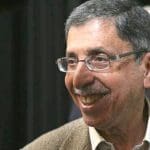
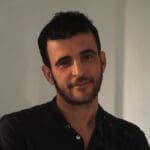
US tech giants portray themselves as architects of a better world powered by artificial intelligence (AI), cloud computing, and data-driven solutions. Under slogans like “AI for Good,” they promise ethical innovation and social progress. Yet in Gaza, these narratives have collapsed, alongside international norms and what remains of the so-called rules-based order.
Israel’s genocidal war on Gaza has highlighted the role of major technology companies in enabling military operations and sustaining the occupation. Beneath the destruction lie servers, neural networks, and software built by some of the world’s most powerful corporations. As Israel weaponizes AI and data analytics to kill Palestinians and destroy their homes, the militarization of digital technologies and infrastructures is redefining accountability and exposing a governance vacuum. This policy brief traces how corporate complicity now extends to war crimes, crimes against humanity, and genocide—and calls for urgent regulation of AI militarization.

Marwa Fatafta· Oct 26, 2025
Media & Outreach
Physical rebuilding of the shattered territory must include a concerted strategy for political reconstruction.

Alaa Tartir· Feb 23, 2026
Fathi Nimer said it was unclear whether the interim constitution would be implemented or abided by. “Basic Law and the new interim constitution cover freedom of expression, protest and elections – but those have not been adhered to by the PA, which has been acting in negligence of Basic Law,” Mr Nimer said.

Fathi Nimer· Feb 11, 2026
“Swept under the rug with no consequences.” Despite condemnation of Israeli moves tightening its grip on the occupied West Bank, observers like Fathi Nimer say they don’t expect the countries stating their opposition to actually do anything.

Fathi Nimer· Feb 10, 2026
We’re building a network for liberation.
As the only global Palestinian think tank, we’re working hard to respond to rapid developments affecting Palestinians, while remaining committed to shedding light on issues that may otherwise be overlooked.






